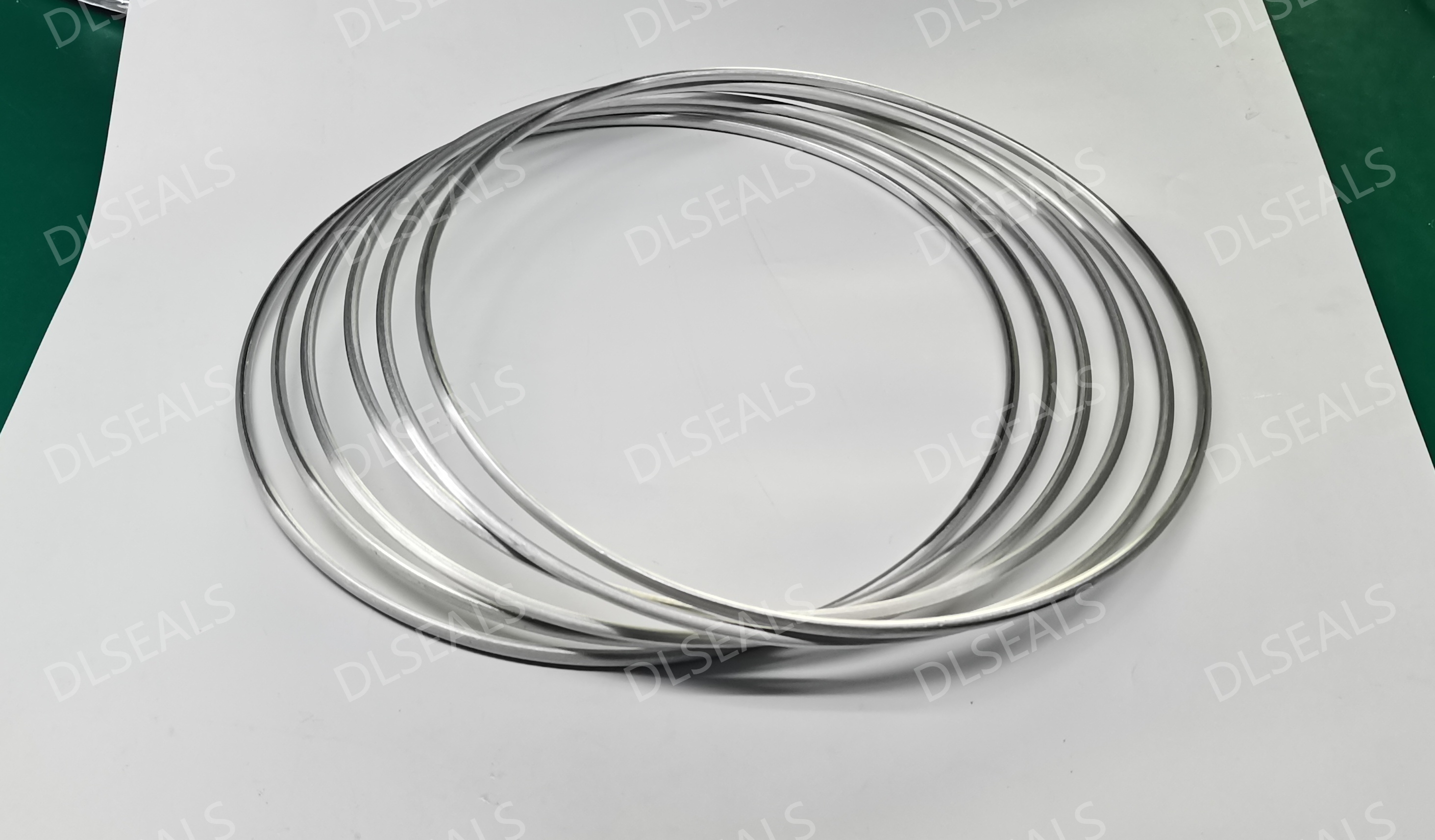News
A2024-09-11

Metal seals are an important sealing element, widely used in various industrial equipment and machinery. Its main function is to prevent the leakage of fluids or gases, protect the normal operation of equipment, and improve the efficiency and reliability of the overall system. This article will introduce the basic concepts, classifications, application fields, selection and maintenance points of metal seals in detail.
1. Basic concepts of metal seals
Metal seals are usually made of high-strength metal materials and can maintain good sealing performance under high temperature, high pressure and corrosive environments. They are designed to provide reliable sealing in mechanical devices to prevent the leakage of fluids or gases. Compared with other types of seals (such as rubber seals), metal seals have higher temperature resistance, pressure resistance and corrosion resistance, and are suitable for more demanding working environments.
2. Classification of metal seals
Metal seals can be divided into the following categories according to different application requirements and design structures:
Plane metal seals:
Simple structure, suitable for sealing applications with flat contact.
Commonly used in static sealing occasions, such as flange connections.
Corrugated metal seals:
Provide sealing effect through corrugated structure, and can adapt to certain compression deformation.
Suitable for high temperature and high pressure environments, such as engine cylinder head seals.
Metal rubber composite seal ring:
Combines the advantages of metal and rubber, the metal part provides strength, and the rubber part provides flexibility.
Commonly used in high pressure, high temperature and vibration environments.
Metal ring seal ring:
Usually used for rotating mechanical seals, it can effectively prevent fluid or gas leakage.
For example, it is common in the sealing device of rotating shafts.
3. Application fields of metal seal rings
Metal seal rings play a key role in many industrial fields. The following are some of the main application fields:
Automotive industry:
Engine cylinder head seals, transmission seals, oil seals, etc.
Reliable sealing performance is required in high temperature and high pressure environments.
Aerospace:
Seals in fuel systems, hydraulic systems and gas transmission systems.
The material and performance requirements of the seal ring are extremely high.
Petrochemical:
Oil drilling equipment, chemical reactors, etc.
Involving high pressure, corrosive media and extreme temperature conditions.
Nuclear energy field:
Nuclear reactor cooling system, nuclear waste treatment system, etc.
Requires long-term stable sealing performance and radiation resistance.
4. Selection and maintenance of metal seals
Selection points:
Material selection:
Select appropriate metal materials such as stainless steel, alloy steel, etc. according to the use environment to ensure temperature resistance, pressure resistance and corrosion resistance.
Dimensions:
Select appropriate seal specifications and sizes according to the size and sealing requirements of the equipment.
Sealing requirements:
Consider the working pressure, temperature range and medium type, and select a suitable sealing design (such as bellows seal, annular seal, etc.).
Maintenance points:
Regular inspection:
Check the status of the seal regularly and replace it in time when it is worn or deformed.
Cleaning and maintenance:
Keep the seal and sealing surface clean to avoid impurities or corrosive substances affecting the sealing effect.
Proper installation:
Install the seal correctly according to the manufacturer's requirements to avoid leakage due to improper installation.
Monitor the use environment:
Monitor the operating environment of the equipment to ensure that it works within the design range and prevent excessive pressure or temperature from causing damage to the seal.
Conclusion
As a key sealing component, metal seals play an important role in various high-demand industrial applications. Understanding its basic concepts, classification, application areas, and correct selection and maintenance methods can effectively improve the reliability and operating efficiency of equipment. In practical applications, combining specific working conditions and needs, selecting appropriate metal seals, and performing effective maintenance will greatly improve the overall performance and life of the system.
[DLSEALS kindly Reminder] Sealing issues? Turn to DLSEALS! As a sealing component manufacturer, we specialize in customizing sealing components, providing a full range of services from design, research and development, production, testing, and more. If you have more information you'd like to know, feel free to contact us directly. DLSEALS's product experts are dedicated to serving you!